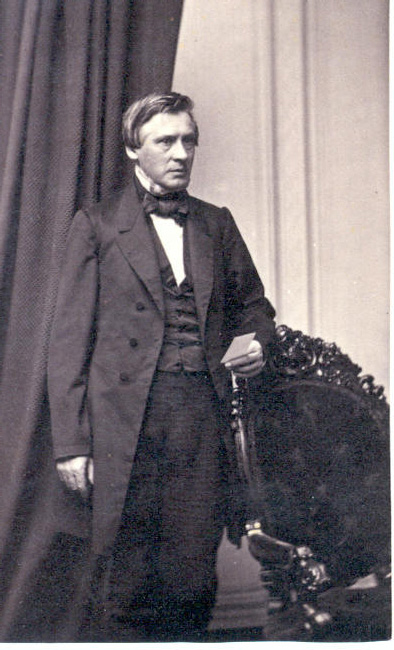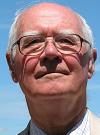This is the second in a series of blog posts concerned with Christian questions about evolution. A major question for me after I became a Christian was: Does science in general and evolution in particular rule out God? I know that is also a question that troubles many Christians. You may remember that in my first post on the Mechanism of Creation, the View from Science, I said that there were four meanings of evolution. The first three change over time, common descent, evolution by natural selection are conclusions based on scientific evidence. I have put off discussion of the fourth meaning until now. That fourth meaning views evolution as a justification for atheism. In this post, I’m going to show that this meaning is a world-view interpretation of the scientific findings, not a conclusion from science. First, not all scientists are atheists. To be sure several recent books by more fervent atheists claim that science in general and evolution in particular disproves God. Perhaps the best known example is The God Delusion by the biologist Richard Dawkins. Dawkins has famously stated that “Darwin made it possible to be an intellectually fulfilled atheist.” Two other examples are Daniel Dennett’s Breaking the Spell: Religion as a Natural Phenomenon and Victor Stenger’s God the Failed Hypothesis.

However, there are other well-known scientists who believe that evolution is perfectly compatible with their Christian faith. Examples are Asa Gray who is widely regarded as the most important American botanist of 19th century, Theodosius Dobzhansky, a geneticist and evolutionary biologist, who was instrumental in shaping the modern synthesis of evolutionary biology with genetics and Francis Collins, a geneticist and former Director of the U.S. Human Genome Project, who recently wrote the book, The Language of God: A Scientist Presents Evidence for Belief. Here is the key point. Science is a wonderful and very productive tool for studying nature. But since God exists outside of nature the question of God is not approachable by the empirical methods used by science. Thus science does not have the competency to make definitive statements about the existence or lack of existence of God! The late Stephen Jay Gould, an agnostic and one of the most widely read spokespersons for evolution, agreed with this conclusion. He said, “Science simply cannot by its legitimate methods adjudicate the issue of God’s possible superintendence of nature. Either half of my colleagues are enormously stupid or else the science of Darwinism is fully compatible with conventional religious beliefs – and equally compatible with atheism.” The bottom line is that science can’t be used to either prove or disprove the existence of God.

The second reason is that reality is complex and multi-leveled. John Polkinghorne weighed in on the question of whether science rules out God in a chapter entitled Theology in the University in his book Faith, Science and Understanding. John Polkinghorne is one of the most important voices in the science and religion field. His career has been divided into two parts. During the first part he was a highly regarded particle physicist who had a Chair in Mathematical Physics at Cambridge University in England. Midway through his career he resigned his chair and entered seminary to be trained as an Anglican Priest. After a short period as a parish priest he returned to Cambridge as the Dean of Trinity Hall where he has thought and written extensively about science and religion. He was knighted in 1997 for distinguished service to science, religion, learning and medical ethics. In 2002, he won the Templeton prize for progress in religion (equivalent to the Nobel Prize of the science and religion field). Back to the multi-leveled nature of reality. Since the time of Galileo, science has used a methodological strategy which emphasizes objective qualities while ignoring qualities that are accessible through human perception. Limiting the field of view is responsible in many ways for the success of science. But we should not be fooled into thinking that the qualities that were omitted are not also very important. Polkinghorne views the development of human consciousness as the most significant event in natural history and he sees the mystery of consciousness as a deep clue to the mystery of reality. He defines personhood in the following way:
By a person I mean at least this: a self-conscious being, able to use the future tense in anticipation, hope and dread; able to perceive meaning and assign value; able to respond to beauty and to the call of moral duty; able to love other persons, even to the point of self-sacrifice. To this I would also wish to add an explicit religious dimension arising from the sense of a Reality beyond oneself, without whose gracious sustaining power life is incomplete, a Reality which is the ground of value and being and to whom the proper response is worship and obedience.
Polkinghorne says,
Pascal spoke of humans as ‘thinking reeds’ so insignificant on a cosmic scale but yet exceeding all the stars since we know them and ourselves and they know nothing.
Polkinghorne goes on to comment that while science’s self-restriction to impersonally describable phenomena has been methodologically effective it is metaphysically uninformed. He talks about three dimensions of reality that are best understood through human perception rather than science. These are the aesthetic dimension (beauty), the moral/ethical dimension and the spiritual dimension. Let’s consider beauty first. We know, for example, that people have different tastes in art and music so there is a very personal dimension to art. However there is enough commonality about the experience of art to indicate that it provides a window into reality. Science can tell us some things about art. For example science can tell us how sound waves are transmitted through the air and then converted into electrical signals in the ear and sent to the brain. But this hardly provides an adequate explanation of the experience of listening to a beautiful piece of music. Polkinghorne says that it is a mysterious fact that the matter of the world, impersonal in terms of science, is also the carrier of beauty. Next let’s consider the moral/ethical dimension of reality. For a number of years I taught a survey course about biotechnology at Iowa State University. One of the most interesting aspects of biotechnology is the ethical questions that are raised by the technology. As an example of this we talked about a genetic disease called Huntington’s disease. It is a neurological disorder that affects movement and cognition and is invariably fatal. It is inherited in a dominant fashion which means that if one parent has the defect each child has a 50% chance of inheriting the defect and the disease. Another important feature is that symptoms don’t begin to appear until middle age and then there is a gradual development of symptoms ultimately leading to death. As a result of biotechnology, there is a now a test that can detect the genetic defect long before the onset of symptoms. However, there is no cure or even effective treatment for the disease. So the question for someone at risk for the disease is whether they want to be tested for the genetic defect. Some choose to be tested so they can plan better for their future while others don’t want to know. Science certainly informs the decision but ultimately the decision is a very personal one. Finally, let’s consider the spiritual dimension. Theology is the study of God, the human experience of the divine. Polkinghorne sees mortality as an important clue to understanding this dimension of reality. There is a 100% probability that you and I will die. The only question is when and in what circumstances. Polkinghorne believes that deep in the human heart is an intuition that there is hope beyond death. He says “I simply argue that an adequate account of personal experience, either in respect of individuals or in respect of the history of the world, cannot neglect the level of encounter with reality that broadly can be labeled ‘religious.’” We’ve now talked about four dimensions of reality, nature, beauty, morality and spirituality. An important thing to note is that each of these dimensions is independent. Polkinghorne says:
With the dawning of self-consciousness, not only did there come into being thinking reeds but also came to be what we might call joyful reeds, which perceived and responded to beauty and moral reeds which acknowledged and obeyed ethical imperatives. Not only do I defend the significance of these different layers of our personal experience but I also defend their autonomy. I deny that one is basic and the rest are derivable from it.

Polkinghorne argues that there is not one single, simple way in which we can know everything. There is no universal epistemology (way of knowing). He goes on to say that our knowledge of entities must be allowed to conform to the way in which they actually can be known. In other words, each of the dimensions or levels of reality that we have talked about are studied by different disciplines that respect the way that each level can be known. The third reason is the conflation of an atheistic world-view with science. Some atheist scientists make statements that sound like conclusions of science but which are really interpretations based on their world-view. Let me give you a couple of examples. The late Carl Sagan was an astronomer at Cornell University and a contributor to the NASA space program. He is best known as the moderator of the Cosmos television series of the 1980’s. At the beginning of the series he made the statement, “The Cosmos is all that is or ever was or ever will be.” Interestingly, this statement was also used to open the current remake of the series. This certainly sounds like a conclusion based on science but it’s not. It is based on a naturalistic world view which assumes that there is nothing beyond nature. Clearly science doesn’t have the competence to address whether anything exists beyond nature, for example God in the spiritual realm. Another example is the statement by Richard Dawkins I mentioned at the beginning of this post. He said, “Darwin made it possible to be an intellectually fulfilled atheist.” In effect he is saying that the science of evolution provides the intellectual basis for his atheism. Now that sounds like a scientific conclusion but it’s not. It is a world-view interpretation that rests on two assumptions. The first is that nature is all there is and the second is that God is not involved in the process of evolution. In my next blog post, I will have more to say about God’s role in evolution. Stephen Weinberg, a highly respected physicist, made the following statement in his book Dreams of a Final Theory. “The deeper science looks into the nature of things, the less the universe seems to bear any imprint of an ‘interested’ God. Little by little science has ‘demystified’ the world, probing into one phenomenon after another and finding only mindless matter beneath the surface.” Again this is not a scientific statement. Rather there is an underlying assumption that science is the only reliable guide to truth. The belief based on this assumption is known as scientism. Again there is an underlying assumption of naturalism as well. Conclusions. In this post, I’ve shown that the 4th meaning of evolution (justification for atheism) is a world-view interpretation rather than a scientific conclusion. I gave three reasons for this conclusion.
- Not all scientists are atheists. There are other well-known scientists who believe that evolution is perfectly compatible with their Christian faith.
- Reality is complex and multi-leveled. While science is the best tool for studying nature, its competence does not extend to the other levels (aesthetic, moral or spiritual).
- Atheist scientists often make statements that sound like science but really reflect presuppositions imported from their world-view.
For these reasons I conclude with the late Stephen J. Gould that, “Science simply cannot by its legitimate methods adjudicate the issue of God’s possible superintendence of nature.” Looking Ahead. In my next post we will continue the discussion of Christian questions about evolution by asking whether evolution is compatible with a Creator God? Questions for Further Reflection:
- What has been your reaction to atheist scientists, such as Richard Dawkins, who claim that science disproves God?
- Has this post been helpful for distinguishing scientific conclusions from metaphysical interpretations of evolution?
- Ken Ham sees evolution as “an evil that must be fought”. At this stage of this post series do you agree or disagree with him?
Suggestions for Further Reading:
- Finding Darwin’s God: A Scientist’s Search for Common Ground between God and Evolution, Kenneth R. Miller. Harper Collins, 2007.
- Theology in the University in the book Faith, Science and Understanding, John Polkinghorne. Yale University Press, 2001.
- Added by the editor: PDF with the titles and links to the posts in Tom Ingebritsen‘s Christianity and Science series. Yes, this was created to meet the requests of readers and will be updated. Your interest in and encouragement of this series is much appreciated (Updated: 4/1/2014. 11:08 pm).
Tom Ingebritsen is an Associate Professor Emeritus in the Dept. of Genetics, Development and Cell Biology at Iowa State University. Since retiring from Iowa State in 2010 he has served as a Campus Staff Member with InterVarsity Graduate & Faculty Ministry at Iowa State University

I really enjoyed your article! I found what you had to say very interesting, and I really liked your explanation about the multi-leveled nature of reality. We live in a time when people’s beliefs seem to be very polarized one way or the other, and there seems to be a tendency among people, educated or not, to prove their view to the exclusion of all others. Here is a link for an article I think you will enjoy about a similar topic. It isn’t nearly as academic, but I found it to be really good, and I think you will like it as well. http://goo.gl/VjhyPM
Thanks for another good article. I completely agree that there are concepts that science is inadequate to address. One of those being the existence of God or anything else beyond nature. However, I do think the issue of science and religion is a little messier than people like Stephen J. Gould and his “non-overlapping magisteria” suggest.
1. Science can address claims of the supernatural when it interacts with the natural world:
Science can’t address God’s existence, but it can evaluate claims concerning acts of God and the nature of God.This is quite plainly seen in the discussion topic here. Evidence, for example, refutes the claim that God created the universe in 6000 years. That evidence cannot be used to refute God himself, but does refute a specific claim about God. Depending on the theology that is built around certain claims, these areas of contention can be important.
2. Even things that science cannot define may still be addressed by science:
The concept of beauty, for example, is an area of active research. Scientists have studied the regions in the brain responsible for perception of beauty. They understand some of the patterns that are commonly thought as beautiful and they have reasonable theories as to why certain things are beautiful. For example, there are survival advantages in finding healthy and fertile women beautiful or finding landscapes of abundant resources and protection beautiful.
Like beauty, science can’t define morality but it can be used to better understand it. Parts of the brain involved in moral decision making and self control can be studied, and why certain things are perceived as moral can be understood. For example, behaviors in others that provide a survival advantage to the group will usually be found to be moral.
3. Science can be utilized in decision making in non-scientific areas:
Science can’t say what goals are moral, but once one has established a moral objective, science can be used to determine how to best meet it. For example, if the moral objective is to reduce hunger, a scientific analysis could be used to determine which of a set of proposals is most likely to help the most people.
Small correction. It should read: Evidence, for example, refutes the claim that God created the universe 6000 years ago.